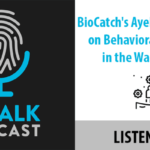
This year’s CNP Expo – an annual Reed Exhibitions conference dedicated to the card not present commerce industry – is right around the corner, taking place May 21-23 at the San Francisco Marriott Marquis. The event boasts over fifty hours of educational sessions for digital commerce professionals of all stripes and experience levels, and an exhibition floor bristling with new technology aimed at solving the challenges of today’s omni-channel financial landscape.
In preparation for this year’s festivities, FindBiometrics Managing Editor Peter Counter interviewed DJ Murphy, Editor in Chief of Reed Exhibitions’ Security Portfolio. The conversation serves as a primer for what to expect at CNP Expo 2019 including session highlights (like a live recording of ‘The Online Fraudcast with Brett Johnson and Karisse Hendrick‘), an overview of how the market has changed in recent years, and how the conference is evolving.
Read our full interview with DJ Murphy, Editor in Chief, Security Portfolio, Reed Exhibitions:
Peter Counter, Managing Editor, FindBiometrics: Who is the target audience for CNP Expo?
DJ Murphy, Editor in Chief, Security Portfolio, Reed Exhibitions: Payment and fraud professionals in e-commerce or in digital commerce – as you can’t really say e-commerce anymore. We kind of fall more heavily on the fraud side, so: fraud managers, analysts, heads of risk, and things of that nature. But also, a lot of the stuff does tie into the payment side, so we do spend a lot of time on cross-border payments and recurring payments, because they are so ingrained in the online world, and the issues that arise from being in a remote situation are really important to us.
The people in the audience are really nuts-and-bolts people, and they really want to learn, so it is the managers, and analysts, and the heads of payment departments and fraud departments.
FindBiometrics: It seems like a great venue for that. You just mentioned something that’s really interesting to me: this idea that we can’t really call it e-commerce anymore and that we have to shift to digital commerce. Since 2012 so much has changed within the digital finance space, and our relationships with payments, and money. From your perspective, how has the digital commerce space changed in recent years? And what are the major industry trends you expect to see at play during this year’s CNP Expo?
Reed Exhibitions: Mobile changed everything, and it continues to. Just as we’re seeing in the security space, with physical and digital concepts converging, it was the same thing with payments and mobile payments. People have been talking about mobile payments for years, and years, and years, and it’s finally happened that everybody got comfortable using their phones for transactions. But it took a long, long time. And that has opened up this whole host of issues because the payments and fraud issues of dealing with the mobile device are significantly different than they were for laptops.
That’s the main thing – the emergence of the mobile phone. And then things that have grown out of that. Notably, the notion of omni-channel commerce – or it’s more the notion that consumers want to engage across all of their devices and all channels and in person and all of these things. That notion of omni-channel commerce has really kind of changed things as well for us.
FindBiometrics: Ever since Apple popularized mobile payments with the iPhone’s Touch ID and Apple Pay, biometrics and digital commerce have really been evolving in tandem. How do biometrics and digital identity technologies fit into your conference this year?
Reed Exhibitions: One of the really interesting tectonic shifts that’s happened since I started doing this is: the focus on payments and risk has moved. When we started everybody was focused on bad guys trying to attack at the point of the transaction. But that has shifted from the transaction level to the account level. So now it’s all about attacking the account, and gaining access to the account, and that makes identity and authentication the most important issue that we talk about today. It’s not necessarily fraud tactics anymore, and what they’re doing to monetize credit card numbers and things like that, it’s really trying to establish who’s on the other end of that device.
We talk about physical and behavioral biometrics, and I think both of those avenues are critical for people who want to sell in this environment now. The idea that these accounts are being bombarded with bot attacks on a daily basis and just being able to tell humans from bots has become critically important for all of these companies. It has kind of focused things from a biometric standpoint.
You mentioned the iPhone, and that’s really developed a level of comfort. Whether that’s the most effective way to do it or not, I don’t know, but the act of people unlocking their devices with their thumbs and now their faces has really accelerated the process of comfort, and therefore I think companies are using, or will want to use, those methods as a better way to authenticate the people who are coming to their site who are users.
FindBiometrics: Absolutely. It is fascinating to delineate between the behavioral biometrics model and the classic touch-to-authenticate because they really sort of fall into this underlying trend of something that’s really enabling new digital commerce technologies, which is this idea of a frictionless experience and that really also fits into the whole trust thing as well.
Speaking a little bit more in detail about the conference, what are some of the notable sessions at CNP Expo this year?
Reed Exhibitions: There are a couple of highlights. We have two kinds of keynotes which I think are really interesting as they are kind of on the opposite side of the same coin. One of our speakers is from the FBI Cyber Task Force Office in San Francisco, and that is going to be neat. And on the other side is Brett Johnson.
Brett spent a lot of time in federal prison for hacking and fraud. He has gained a measure of popularity these days as someone who operated on that side of things. He started a site called Shadow Crew way back in the day, and some of his associates were some of the really big guys that got caught up in the TJX hack way back when, and he’d been on the run and basically pioneered a lot of the online fraud techniques that they are still battling today.
Brett has spoken with us before, and he does a podcast now with one of my other colleagues, Karisse Hendrick, and they are doing a live version as one of our keynotes. They are recording their live podcast on stage and I think that is going to be really neat. He is also going to do a breakout session where he delves into all of the things that are going on in the dark web and it will show people just how easy it is to get the information they need to basically steal from all of these folks who are attending our show. So, that’s one thing.
But I also like it when we get the merchant side of the equation to open up and let us get under the hood to see what they’re doing. We have a couple of really neat presentations this year that I’m really excited to see. One is from Airbnb and one is from Staples and they’re going to talk about how they use analytics to address all of these problems. I get interested with this because a lot of times these companies hold these things really close to the vest. They look at them as competitive advantages if they think that they’re good at fraud prevention where I think the notion that sharing that information, the power of it is multiplied and I think it helps everybody in the end. It’s a rising tide raises all boats scenario.
A lot of times companies don’t look at it that way, they look at it as, “I’m doing well and I want people to not attack me, I want him to go to the guy down the street or I just want them to focus on somebody else and not me.” I understand that, I totally get it. But I feel like events like this are a place for these merchants to do what the bad guys do, which is to get together and exchange information. It’s like a force multiplier when these companies finally start deciding to share what they know.
There are several merchants that are giving presentations throughout the course of the educational program where they’re opening up the hood a little bit and they’re sharing and that really appeals to me and I hope to the folks who are coming to the show.
FindBiometrics: It makes a lot of sense that it would. The idea of transparency, especially in the two examples you just gave are really interesting because you’ve got Staples which is this huge physical retailer versus Airbnb which is majorly disruptive, still in sort of this Wild West territory. It will be nice to see how those conversations fit together. Meanwhile, you have this black hat style conversation going on. Opening up the hood on it all is really fascinating because digital commerce is evolving really quickly and yet everybody has a personal experience being a consumer, using all of this technology, and they don’t necessarily fully understand how the technology works, so there is sort of an issue there in terms of trust, right?
Reed Exhibits: Absolutely and I totally agree that the issues that Staples has are going to be different from the issues that Airbnb has, just because of the nature of their models, and their verticals, and any other number of things. But there are definitely lessons that everybody can take away from both of those companies, and the way that both of those companies operate, and they can definitely implement those things in their own businesses even if they are completely different. There are things from those talks that are going to be very specific to the vertical and the model that they operate in but there are going to be universal truths as well. I think it is great to get the perspectives of both of those kinds of companies.
FindBiometrics: Part of CNP Expo is its educational sessions. What are some of the objectives of the educational sessions this year?
Reed Exhibitions: We try to make sure that there are very practical things that people can take out of the educational sessions. We don’t do a lot of really forward-looking, aspirational, sort of ‘what’s happening?’ futurist kind of stuff – so there’s not a lot of stuff that we’re doing right now about blockchain, although that’s on our minds. We obviously have some, but there’s not as much, maybe, as you would think about artificial intelligence and things like that because the nuts-and-bolts of what folks are dealing with are not quite at that level yet.
We did a research project last year about how people conducted their fraud operations and surprisingly few companies that responded to us had implemented any kind of systems that relied on AI or machine learning. And actually, biometrics were kind of in that same realm as well, although they were farther along than AI was at that point.
But that also makes sense of where people are in the cycle of their capital expenditures and all this other stuff, and they might have invested in some system just a year or two years ago that relied on some other piece of technology. And these things will naturally fix themselves in time. But it was surprising to me how few folks were looking into that at this point.
We keep in mind what their problems are, and kind of tailor our educational program to address that right now while keeping an eye on what’s coming down the pipe.
FindBiometrics: Yes, you have to be ready for it. I think it is really great that you keep things practical especially in digital commerce. It’s really easy for people who sort of have these siloed areas of expertise to conflate what’s coming and what’s available, especially right now with the way that people talk about certain trends like AI and blockchain and cryptocurrency.
Reed Exhibitions: Just from our experience, I completely agree with that. What’s exciting to cover? New stuff, not old stuff. So we fall victim to that too, from time to time. We’re always looking ahead and we think people know about that – let’s talk about something new. But in the show, especially in these face-to-face engagements, it’s really important to us to make sure that we understand what their biggest problems are and we’re sending them home with information that can help deal with those.
FindBiometrics: Very useful stuff. How would you like to see the conference evolve in the coming years?
Reed Exhibitions: If you scan down the range of people who attend the show to learn, there aren’t as many banks involved as I would like. The interesting thing about that is, it’s because there’s this adversarial relationship between issuers and merchants. If you get them in the same room, they’ve been butting heads for 50 years on credit cards and costs and now fraud is the same way – authorization and all that stuff. But the thing is a large number of their concerns are the same. The issuers all have fraud departments, but they might have different motivations to stop this fraud and a different focus because of who their customer is, but the threats that they are facing are very similar, and the skills that they need to do their jobs are very similar too. I’m talking mostly about the fraud department of these respective types of folks.
It’s great to get the merchants together, talking to each other, but I would like the show to evolve so that they are talking to the issuers as well and then find more of that common ground between the two of them. It’s the same theory as sharing information among merchants, sharing information between merchants and issuers. and then the financial institution side of things, I think will have the same effect: that rising tide effect.
FindBiometrics: That was exactly what I was thinking too, because when you get people together you create a healthy industry, especially when you’re essentially under assault in this age of the data breach. The threats are the same, the fraudsters are just trying to commit fraud. They don’t care if you are an issuer or a merchant.
Reed Exhibitions: Right. And the banks, that is where all the money is, so they are under every bit of threat, if not more, as e-commerce merchants. It just so happens that the e-commerce merchants are who we speak to as a publication. That was the audience that we found was the most receptive to what we were talking about but I’m telling you: for two groups of people that don’t get along they have an awful lot in common.
FindBiometrics: Maybe that is the issue. Thanks so much, DJ, for talking to me today about CNP Expo. And good luck with the show. We’re super excited to report on it.






Follow Us